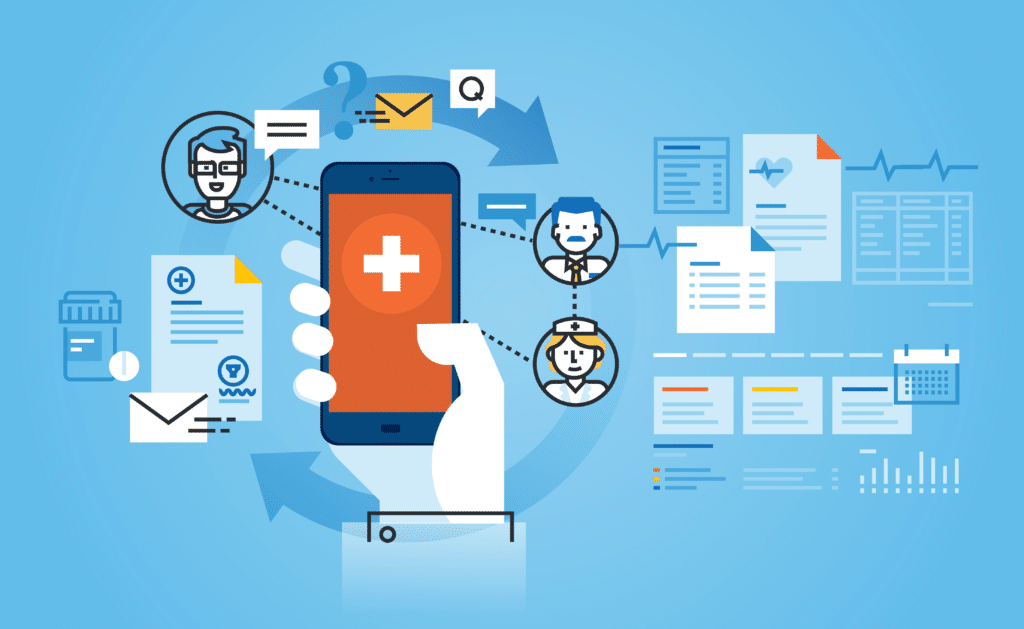Patient experiences play a pivotal role in healthcare, as they have a profound impact on patient engagement, satisfaction, and loyalty. In today’s digital age, patients expect interactions with healthcare providers to be tailored to their unique needs and preferences, and personalized experiences are crucial to building trust, improving outcomes, and driving patient satisfaction.
Marketing Cloud Personalization empowers healthcare organizations to deliver relevant and timely information to patients, ultimately enhancing patient engagement by harnessing the power of first-party data. It helps streamline the collection and analysis of patient behavioral data on digital properties such as a website, patient portal, and mobile app.
By leveraging this comprehensive information about your patient population, including their relevant encounter data, demographics, and preferences, healthcare providers can offer targeted messaging, relevant content, and personalized support. This personalized communication and content can address patients’ specific needs, provide targeted recommendations, and create a more connected and empathetic experience.
Key elements of effective patient experiences
Crafting patient experiences requires healthcare organizations to consider several key elements. First and foremost, collecting and integrating comprehensive patient data is necessary for creating a holistic view of each individual. By combining data from various sources, such as electronic health records, patient surveys, and digital interactions, healthcare providers can gain valuable insights into patients’ needs, preferences, and behaviors.
Segmentation strategies based on patient profiles, medical history, and preferences are essential for targeting the right message to the right patient at the right time. By categorizing patients into relevant segments, healthcare organizations can deliver tailored messaging, personalized recommendations, and customized treatment plans.
Customizing messaging and content is another key aspect of these use cases. Patients want information that is relevant to their specific conditions, treatment plans, and health goals. By tailoring content to address patients’ needs and concerns, healthcare providers can enhance patient engagement and empower individuals to take an active role in their healthcare journey.
Real-time personalization is vital for delivering relevant information and support to patients. By leveraging real-time data and behavioral triggers, healthcare organizations can proactively engage patients, provide timely reminders, and offer support at critical moments. This personalized approach helps patients feel cared for, fosters adherence to treatment plans, and improves overall health outcomes.
Real-world examples of successful patient experience use cases
Implementing these healthcare use cases yields impressive results for organizations that embrace Marketing Cloud Personalization. Let’s explore some real-world examples of successful implementations:
Use case #1: Personalized website experiences
Healthcare organizations can leverage Marketing Cloud Personalization to personalize their website content and landing pages based on their unknown or known patient audience. By leveraging data such as location, browsing history, and previous interactions, marketers can dynamically adjust the content displayed to match the patient’s interests and needs. This customization helps improve engagement, increases the likelihood of conversions, and provides a more seamless patient experience.
A healthcare website can be personalized in the following ways:
- Adding a call to action for someone who doesn’t have a primary care provider
- Highlighting specialists near the patient’s location
- Promoting content based on encounter data or website search, such as providing information on sinus infections based on a recent urgent care visit or search
- Highlighting relevant location data, including closest office and when they open
Use case #2: Tailored patient education materials and resources
With Marketing Cloud Personalization, in combination with Marketing Cloud Engagement, healthcare providers can deliver customized patient education materials based on a patient’s specific condition, treatment plan, unique member plan, or self-selected interests.
For example, an email and web-based campaign can provide specific health tips based on a patient’s condition or deliver appointment reminders with relevant information. This approach ensures that patients receive the most relevant and helpful information to support their healthcare journey. Combine this with your overall content strategy to drive patients back to your website to explore and convert.
Use case #3: Targeted wellness and preventive care campaigns
Healthcare providers can leverage Marketing Cloud Personalization to design targeted campaigns promoting wellness and preventive care. By analyzing patient data, healthcare organizations can identify individuals who may benefit from specific preventive measures or screenings and deliver personalized messages encouraging them to take proactive steps towards better health.
Use case #4: Unified patient profile
Marketing Cloud Personalization enables healthcare organizations to create a unified patient profile by integrating data from various sources. This unified view of the patient allows for personalized and consistent experiences across different touchpoints, such as websites, mobile apps, and email campaigns. By having a comprehensive understanding of the patient, healthcare providers can deliver tailored content and recommendations, leading to improved patient engagement and satisfaction.
Use case #5: Customizing mobile app experiences
Mobile apps have become an essential touchpoint for healthcare organizations to engage patients. Marketing Cloud Personalization allows healthcare companies to customize the mobile app experience based on patient preferences, behaviors, and location. For instance, a healthcare app can display personalized health recommendations, appointment scheduling options, and targeted health education content, leading to higher app engagement and user retention.
Find out how our team can help you transform your customer interactions with Marketing Cloud Personalization. 




